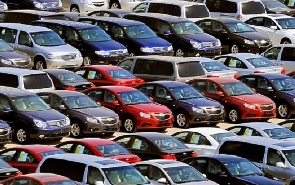A group comprising car dealers, spare parts dealers, clearing agents, and artisans intends staging a demonstration on Thursday, 27 August 2020 against the government of Ghana’s ban on old car imports.
The group wants the ban reversed.
The coalition said in a statement that the Customs Amendment Act, 2020, which comes into force from November this year, will have an adverse impact on the sector as far as jobs are concerned.
The “protest is to serve as a strong signal to the government that its decision will collapse our business and deprive more than 20,000 artisans of our livelihood if the policy is rolled out on 1 November, 2020.”
The coalition said it took the decision to march after all its meetings with the President and his Minister of Trade and Industry produced no good results for them.
The nationwide demonstration will start from Tema followed by replicas in Accra, Kumasi, Takoradi and Tamale.
It is “to register our protest against the implementation of the policy on 1 November 2020.”
“We, therefore, call on all our members to come out in their numbers in support of this protest march to save our business,” the statement added.
Ghana banned the importation of cars older than 10 years to encourage international companies including Volkswagen AG and Nissan Motor Co. to set up local plants in the West African country.
The new law also provides import-duty rebates for companies that manufacture or assemble cars in Ghana, according to the act of Parliament obtained Thursday by Bloomberg.
The embargo will take effect six months after the manufacturing or assembling of new vehicles in Ghana begin under a special government program meant to draw investment.
Volkswagen, Nissan, Toyota Motor Corp., Suzuki Motor Corp. and Renault SA are among automakers weighing the local assembly of vehicles in a country where used cars make up about 70% of vehicle imports. Ghana is seeking to become a car-manufacturing hub for West Africa, a region with more than 380 million people.
The import restrictions could cost the government as much as $143 million in customs revenue in the first three years after implementation, according to parliamentary documents. Used-car sellers offer more affordable deals in a country where auto loans are rare.
The law, signed by President Nana Akufo-Addo on April 30, also bans the importation of cars which have been involved in accidents, which dealers bring in and repair to provide even cheaper options to consumers.
The ban on these will take effect from October, regardless of their date of manufacture.
Click to view details



Business News of Sunday, 23 August 2020
Source: classfmonline.com

















